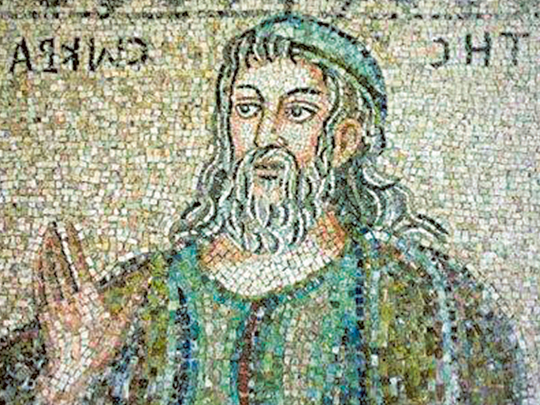
London: Almost 100 items of Syrian art and antiquities looted by the extremist Daesh have been smuggled into Britain and sold for money to fund the group’s activities, art crime experts and archeologists have warned, according to the British press.
The items, allegedly being sold in London, include looted gold and silver Byzantine coins as well as Roman pottery and glass worth hundreds of thousands of dollars, the Times newspaper reported Wednesday.
The London paper compared the phenomenon to Africa’s “blood diamond” industry, in which the money raised by the sale of precious African diamonds financed wars and conflicts across the continent.
“I get approached all the time about looted artifacts, whether it’s directly from someone who’s trying to sell it or images that were sent to somebody who has offered to buy it,” Christopher Marinello, director of Art Recovery International, told the Times. His group specializes in the identification and recovery of stolen and disputed art and artifacts.
Marinello said one item alone could be worth tens of thousands of dollars, but the more valuable and unique the item, the more scrutiny there will be, and so collectors tended to shy away from more valuable items. He said the trade then tended to be in “middle-value objects that don’t stand out.”
The newspaper also quoted Michael Danti, an archeologist with the Syrian Heritage Initiative, as saying that Daesh was known to be involved.
“We see heavy looting in Daesh-controlled areas,” he said. The smuggling is thought to take place via Turkey, Jordan and Lebanon, the paper reported, routes also known for smuggling people, guns and drugs.
BBC’s Radio 4 also took David Gill, professor of archeological heritage at Suffolk University, to unnamed London galleries to find out whether he could spot any looted artifacts.
“We went into one gallery and were chatting about a piece and the person quite openly said, ‘We just got this out of Syria,’ and we sort of looked at each other and said that’s really quite interesting, and he said, ‘Oh, well, this piece is more interesting. It has just come from Iraq,’ “ the archeologist told Radio 4. “So it’s quite open in that sense.”
Robert Jenrick, a member of Parliament and former director of the auction house Christie’s, called the trade “the greatest threat to culture since the end of the Second World War and also, more pressingly, a major source of revenue to Daesh and the Al Assad regime,” the Times reported. Syrian President Bashar Al Assad has been engaged in fighting with rebels for four years.
Jenrick said, however, that such looted artifacts had not appeared on the open market.
A spokeswoman for Britain’s Metropolitan Police told the newspaper that police had “four live investigations, all of which require liaison with foreign jurisdictions.” She said no arrests had been made, however.










